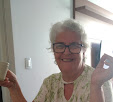HASTA
MAÑANA
ABBA
SONGWRITERS: BJOERN K. ULVAEUS; BENNY GORAN BROR
ANDERSON; STIG ERIC LEOPOLD ANDERSON & MARY MCCLUSKEY
COUNTRY: SWEDEN
ALBUM: WATERLOO
LABEL: SUNSHINE RECORDS
GENRE: POP
YEAR: 1974
ABBA(/ˈæbə/AB-ə,
Swedish:[ˈâbːa]) are a
Swedish pop group formed in Stockholm in 1972
by Agnetha Fältskog,
Björn Ulvaeus, Benny Andersson, and Anni-Frid Lyngstad.
The group's name is an acronym of the first
letters of their first names arranged in a chiastic pattern. Widely
considered one of the greatest musical groups of all time, they became one of
the most
commercially successful acts in the history
of popular music, topping the charts worldwide from 1974 to 1983. They have achieved 48 hit
singles.
In 1974,
ABBA were Sweden's first winner of the Eurovision
Song Contest with the song "Waterloo",
which in 2005 was chosen as the best song in the competition's history as part
of the 50th anniversary celebration of the contest. During the band's main active years, it consisted of
two married couples: Fältskog and Ulvaeus, and Lyngstad and Andersson. With the increase of their
popularity, their personal lives suffered, which eventually resulted in the
collapse of both marriages. The relationship changes were
reflected in the group's music, with latter compositions featuring darker and
more introspective lyrics. After ABBA separated in 1982, Andersson and Ulvaeus
continued their success writing music for multiple audiences including stage,
musicals and movies, while Fältskog and Lyngstad pursued solo careers.
Ten years after the group broke up, a
compilation, ABBA Gold, was
released, becoming a worldwide best-seller. In 1999, ABBA's music was adapted
into Mamma Mia!,
a successful musical that toured worldwide. A film of the same name,
released in 2008, became the highest-grossing film in the United Kingdom that
year. A sequel, Mamma Mia! Here We Go Again, was released
in 2018. That same year it was also announced the band after 35
years of being inactive had reunited and recorded two new songs for Voyage,
their first studio album in 40 years, scheduled for release in 2021. A concert
residency to support the Voyage album featuring ABBA as virtual avatars
– dubbed 'ABBAtars' – will take place in London from May to October 2022.
ABBA is one of the best-selling
music artists of all time, with sales estimated at
150 million records. and the group was ranked 3rd best-selling singles artists
in the United Kingdom with a total of 11.3 million singles sold by 3 November
2012. ABBA was the first group from a non-English-speaking country to achieve
consistent success in the charts of English-speaking countries, including the United States, United Kingdom, Republic of
Ireland, Canada,
Australia, New Zealand and South Africa.
They are the best-selling Swedish band of all time and one of the best-selling
bands originating in continental Europe.
ABBA had eight
consecutive number-one albums in the UK. The group
also enjoyed significant success in Latin America and recorded a collection of their hit songs in Spanish. The group was inducted into the Rock and Roll
Hall of Fame in 2010. In 2015, their song "Dancing Queen"
was inducted into the Recording Academy's Grammy Hall
of Fame.
"Hasta Mañana" (Spanish for "Until
tomorrow") is the fourth track on Swedish pop group ABBA's second studio album, Waterloo. It was released in 1974 as the
album's third and final single.
Initially fearing that "Waterloo"
might be too risky to enter for the 1974 Eurovision Song
Contest, the group considered performing the ballad
"Hasta Mañana" instead, as they thought that it was more in style
with previous Eurovision winners. Eventually, they decided on
"Waterloo", primarily because it featured Agnetha Fältskog and Anni-Frid Lyngstad sharing lead vocals, whereas "Hasta Mañana" had Fältskog
as the sole lead vocalist.
The song was still known under its original
working title "Who's Gonna Love You?" when the backing track was
recorded. The lyrics were later written by Stig Anderson while on a Christmas
holiday to the Canary Islands and dictated over the telephone.
While
the song was being recorded, they decided to give up on it at one point because
none of them could sing it properly. Agnetha alone was in the studio and
decided to play around with it. She felt if she could sing it in
a Connie Francis style it would work — and it did.
In
Australia, "Hasta Mañana" was used as a B-side on the "So Long" single (which never charted). After
being featured in the popular The Best of ABBA TV Special, broadcast in
March 1976, the song was re-released and became a Top 20 hit in Australia and
Top 10 hit in New Zealand.
It
reached number 2 on the charts in South Africa in November 1974.
Where is the spring
and the summer
That once was yours and mine?
Where did it go?
I just don't know
But still my love for you will live forever
Hasta Mañana 'til we meet again
Don't know where, don't know when
Darling, our love was much too strong to die
We'll find a way to face a new tomorrow
Hasta Mañana, say we'll meet again
I can't do without you
Time to forget, send me a letter
Say you forgive, the sooner the better
Hasta Mañana, baby, Hasta Mañana, until then
Where is the dream we were dreaming
And all the nights we shared
Where did they go?
I just don't know
And I can't tell you just how much I miss you
Hasta Mañana 'til we meet again
Don't know where, don't know when
Darling, our love was much too strong to die
We'll find a way to face a new tomorrow
Hasta Mañana, say we'll meet again
I can't do without you
Time to forget, send me a letter
Say you forgive, the sooner the better
Hasta Mañana, baby, Hasta Mañana, until then
Hasta Mañana, say we'll meet again
I can't do without you
Time to forget, send me a letter
Say you forgive, the sooner the better
Hasta Mañana, baby, Hasta Mañana, until then.







0 comentários:
Postar um comentário